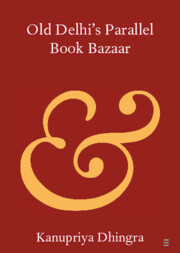Element contents
Old Delhi's Parallel Book Bazaar
Published online by Cambridge University Press: 24 November 2024
Summary
- Type
- Element
- Information
- Online ISBN: 9781009463027Publisher: Cambridge University PressPrint publication: 28 November 2024

